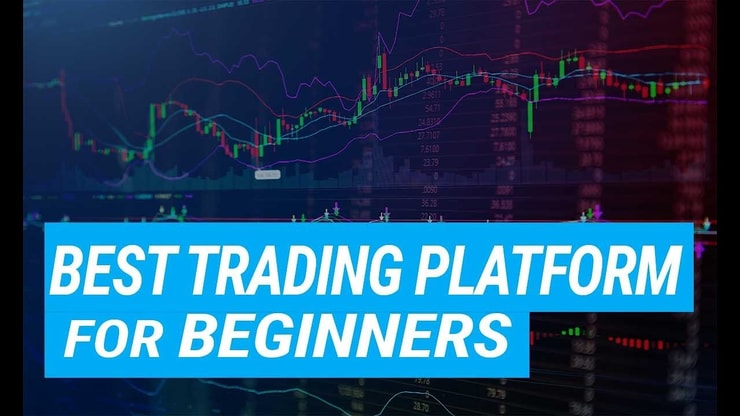Day trading is a high-stakes game, and the best day trading platforms in Canada are the arenas where it all goes down. It’s the software that provides traders with the tools, data, and interface to buy and sell financial instruments within the same trading day. The right platform can be the difference between making profits and incurring losses.
Read this article because it’s a comprehensive breakdown of what to look for in a Canadian day trading platform, tailored for both beginners and seasoned traders.
It has answers to the following questions …
- What Is the Best Canadian Day Trading Platform?
- What Tools and Features Should You Look for in a Canadian Day Trading Platform?
- How Do You Identify the Top Canadian Day Trading Platform for Your Needs?
- How Do Fees and Commissions Impact Your Choice of a Day Trading Platform?
- What Types of Assets Can You Trade on Canadian Platforms?
- How Important Are Research Tools and Customer Support in a Day Trading Platform?
Table of Contents
- 1 What Is a Day Trading Platform?
- 2 Best Day Trading Platforms in Canada
- 3 Evaluating a Day Trading Platform in Canada
- 4 Tips Before Canadians Start Day Trading
- 5 Risks and Benefits of Day Trading
- 6 Key Takeaways
- 7 Day Trading Platforms FAQs
- 7.1 What is the Difference Between an Online Broker, a Discount Brokerage, and a Trading Platform?
- 7.2 Should I Use an Online Trading Platform or a Robo-Advisor?
- 7.3 What Should I Look Out for in an Online Trading Platform?
- 7.4 What Are the Key Differences Between Platforms for Day Trading?
- 7.5 Is There a Maximum Investment Limit on These Platforms?
- 7.6 What Funds and Investments Are Supported on Canadian Platforms?
- 7.7 How Do Order Types and Transactions Work?
- 7.8 How Are Prices and Costs Determined?
- 7.9 What Companies and Businesses Partner with Trading Platforms?
- 7.10 How Does Customer Experience Vary Among Platforms?
- 7.11 What Are Some Additional Features and Alternatives?
- 7.12 Do Platforms Cater to Residents from Different Countries?
- 7.13 What Are the Pros and Cons Based on Web Interface?
- 7.14 How Do Portfolios and Stock Brokers Interact?
- 7.15 What Makes Questrade a Viable Choice?
What Is a Day Trading Platform?

A day trading platform is essentially the software that enables investors to execute trades in real-time. It offers a variety of trading tools and features, from advanced charting to real-time market data. As someone who has been trading and teaching for years, I can tell you that the platform you choose can make or break your trading experience.
Best Day Trading Platforms in Canada
In Canada, some of the top platforms for day trading include Questrade, Wealthsimple, and TD Direct Investing. These platforms offer a range of assets to trade, from stocks and ETFs to forex and cryptocurrencies. They also provide a variety of trading tools like indicators and charting tools that are crucial for day trading.
What if you’re interested in specific sectors like AI stocks? Canada’s AI sector is booming, and it’s a field that could offer some hidden gems for traders who know where to look. You’ll need a platform that provides in-depth analytics and real-time data on AI stocks to make informed decisions. For a deep dive into Canada’s AI stock opportunities for 2023, check out this comprehensive guide.
So … which is the best for you? Of course I can’t answer that. But here are some decent contenders.
StocksToTrade
When it comes to trading platforms, StocksToTrade is first on my list. It’s a powerful trading platform that integrates with most major brokers. I helped to design it, which means it has all the trading indicators, news sources, and stock screening capabilities that traders like me look for in a platform.
It has the trading indicators, dynamic charts, and stock screening capabilities that traders like me look for in a platform. It also has a selection of add-on alerts services, so you can stay ahead of the curve.
There are two key tools on StocksToTrade you should know about — check the guides on my site:
These are my secret weapons in finding hot plays every day. The Breaking News chat room alerts me to important news articles in stocks and the overall economy, giving me a crucial trading edge.
In fact, roughly half of my recent trades have been direct effects of Breaking News.
Get a 14-day trial of Breaking News Chat and StocksToTrade here — only $17!
Questrade
Questrade is a popular choice among Canadian day traders. The platform offers a range of investment products, from equities and bonds to CFDs and options trading. With Questrade Edge, you get an advanced dashboard that’s both powerful and sleek. The platform also offers a variety of research tools and resources to help you make informed trading decisions.
More Breaking News
- Entegris Faces Downturn: Is It Time To Reconsider Investment Strategies?
- Riot Platforms’ Stock Fluctuates Amid Bitcoin’s Record Surge: Is Opportunity Knocking?
- Is Recursion Pharmaceuticals Resilient Enough for a Jump?
Wealthsimple
Wealthsimple is known for its user-friendly interface and a wide range of investment options. Whether you’re trading equities, bonds, or even cryptocurrencies, Wealthsimple has you covered. The platform is particularly suitable for novice traders, offering educational articles and an intuitive, modern design.
CIBC Investor
CIBC Investor’s Edge is the brokerage arm of the CIBC bank, one of the big banks in Toronto. The platform offers a range of securities, from shares and bonds to futures and options trading. It also provides various research tools, including charts and watchlists, to help you analyze market trends.
Qtrade
Qtrade offers a robust trading platform with a focus on customer service and support. The platform provides a wide range of investment options, from equities and commodities to foreign exchange and indices. It also offers various research tools and resources, including real-time quotes and price alerts.
TradeStation
TradeStation is known for its powerful trading tools and sophisticated algorithms. The platform offers a wide range of securities, from equities and bonds to futures and options contracts. It also provides advanced charting tools and a customizable, up-to-date interface.
TD Direct Investing
TD Direct Investing offers a wide range of investment options, from equities and bonds to CFDs and options trading. The platform provides various research tools, including charts and watchlists, to help you make informed decisions. It also offers a range of account types, including margin accounts and savings accounts with competitive interest rates.
InteractiveBrokers
InteractiveBrokers is a platform that caters to both novice and experienced traders. It offers a wide range of investment options, from shares and bonds to commodities and futures. The platform provides various research tools and resources, including real-time quotes and price alerts. It also offers a customizable, intuitive interface that’s both sleek and modern.
Evaluating a Day Trading Platform in Canada

When you’re evaluating a day trading platform in Canada, you’re not just looking at the bells and whistles. You need to consider the range of securities and equities available for trading, from shares and bonds to commodities and futures. The platform should offer a suite of research tools for market analysis, including charts, watchlists, and stock screeners. Don’t forget to check the pricing structure, including trader pricing, commission fees, and any inactivity fees. The platform should be customizable, intuitive, and up-to-date with the latest technology, whether you’re using Android or iOS devices.
What to Look For in a Day Trading Platform in Canada?
When evaluating a day trading platform, consider the range of trading tools, the cost of trading fees and commissions, and the platform’s user interface. Whether it’s a mobile app or a desktop interface, it should be user-friendly and offer efficient, reliable service.
When evaluating a day trading platform, consider the range of trading tools, the cost of trading fees and commissions, and the platform’s user interface. But what about tracking your performance? Keeping a trading journal is crucial for tracking your trades, strategies, and emotions. It helps you identify what’s working and what’s not, allowing you to refine your trading approach. A good platform should allow you to easily integrate or maintain a trading journal. To learn more about the importance of a trading journal and how to maintain one, read this informative article.
Tips Before Canadians Start Day Trading
Before you dive into the world of day trading, there are some essential tips to keep in mind. First, ensure you have a solid investment strategy that aligns with your financial goals and risk tolerance. You’ll need a brokerage account with enough balance to meet account minimums and handle margin accounts. Be aware of the deposit requirements and how to make deposits. Also, make sure you’re up to speed with the trading strategies you plan to employ. Lastly, educate yourself. There are plenty of resources, articles, and educational links available to help you make informed decisions.
Day Trading Taxes in Canada
Before you start day trading, be aware that the Canada Revenue Agency has specific tax rules for day traders. You’ll need to report your capital gains and losses.
Day Trading Rules in Canada
In Canada, day traders are subject to a number of rules, including certain margin requirements. Make sure you’re aware of these rules to avoid any surprises.
Risks and Benefits of Day Trading

Day trading isn’t for the faint of heart. The risks are high, and the strategy you choose can significantly impact your portfolio. On the flip side, the benefits can be substantial if you play your cards right. You have the opportunity to make money quickly, but you can also lose everything just as fast. It’s crucial to understand the market conditions, including volume, liquidity, and the overall mood of the stock market. Always keep an eye on market news and information that could affect your positions.
Benefits of Day Trading
Day trading offers the potential for significant profits and the ability to constantly monitor market movements.
The kind of stocks you decide to trade can also add another layer of risk or opportunity. Penny stocks, for instance, are volatile but can offer quick gains if you know what you’re doing. Being aware of the market conditions for these stocks is crucial. For more insights into day trading penny stocks, you can read this detailed guide.
Risks of Day Trading
However, it also comes with high risks and is not suitable for everyone. You could lose more than your initial investment if you’re not careful.
Key Takeaways
- Choose a platform that offers a variety of trading tools and assets.
- Be aware of the tax implications and rules for day trading in Canada.
- Day trading offers high rewards but also comes with significant risks.
Trading isn’t rocket science. It’s a skill you build and work on like any other. Trading has changed my life, and I think this way of life should be open to more people…
I’ve built my Trading Challenge to pass on the things I had to learn for myself. It’s the kind of community that I wish I had when I was starting out.
We don’t accept everyone. If you’re up for the challenge — I want to hear from you.
Apply to the Trading Challenge here.
Trading is a battlefield. The more knowledge you have, the better prepared you’ll be.
What trading platform do YOU use? Let me know in the comments — I love hearing from my readers!
Day Trading Platforms FAQs
What is the Difference Between an Online Broker, a Discount Brokerage, and a Trading Platform?
An online broker is a firm that executes trades for you, a discount brokerage offers fewer services but at a lower cost, and a trading platform is the software that enables you to trade.
Should I Use an Online Trading Platform or a Robo-Advisor?
If you want more control over your trades, go for a trading platform. If you prefer a hands-off approach, a robo-advisor might be better for you.
What Should I Look Out for in an Online Trading Platform?
Look for low trading fees, a wide range of trading tools, and a user-friendly interface. Make sure the platform is regulated by the appropriate authorities.
What Are the Key Differences Between Platforms for Day Trading?
The differences between day trading platforms can be substantial, varying in features like snap quotes, available investment products, and levels of customer support. For example, one company might offer real-time snap quotes for free, while another might charge a fee. These differences often impact the type of customers each platform attracts.
Is There a Maximum Investment Limit on These Platforms?
The maximum investment limit can differ from one platform to another and can depend on a lot of factors, including regulatory guidelines and the company’s policy. Some platforms have no maximum, allowing customers to invest as much as they want, while others have specific limits. Always check this information before making an investment decision, as it could influence your trading idea.
What Funds and Investments Are Supported on Canadian Platforms?
Day trading platforms in Canada typically support a variety of investment options such as funds, Guaranteed Investment Certificates (GICs), and IPOs (Initial Public Offerings). Before making any investments, it’s important to check what options are supported on the platform you’re considering.
How Do Order Types and Transactions Work?
Platforms offer different order types like market orders, limit orders, and stop orders. Understanding these order types is crucial to executing successful day trades. Once an order is placed, transactions are updated to reflect changes in your account balance.
How Are Prices and Costs Determined?
Prices of stocks and other investment vehicles fluctuate based on market dynamics and exchanges. The platform may also charge various costs, such as trading fees, that can eat into your income from investments. Always consider these factors before making a trade.
What Companies and Businesses Partner with Trading Platforms?
Companies and brokerage firms often partner with businesses to offer additional services to clients. This could range from apps that are easy-to-use and secure to specialized trading tools designed for different investment strategies.
How Does Customer Experience Vary Among Platforms?
Customer experience can differ for many reasons, from the level of customer assistance provided to the security measures in place. Reviews are a good way to gauge customer satisfaction, but keep in mind that experiences can differ among clients.
What Are Some Additional Features and Alternatives?
In addition to basic trading options, platforms may offer other alternatives like options trading or futures contracts. Features like streaming data and APIs (Application Programming Interfaces) may also be available, and it’s essential to explore these before making a decision.
Do Platforms Cater to Residents from Different Countries?
While focusing on the Canadian market, many platforms also support residents from other countries. Currency considerations, like paying in CAD, are important, as are payment methods such as credit cards and cash transactions.
What Are the Pros and Cons Based on Web Interface?
The web interface of trading platforms can differ in terms of ease of access, user-friendliness, and security. Pros may include an easy-to-use interface while cons may involve issues with page loading or limited features.
How Do Portfolios and Stock Brokers Interact?
Stock brokers can manage portfolios for clients, offering a range of services from long-term investments to day trading. Your choice of stock broker should be a major consideration, as different brokers offer different levels of service and expertise.
What Makes Questrade a Viable Choice?
Questrade is a popular choice in Canada, especially for its Questrade Global offering that enables international trading. It offers low-cost ETF purchases and stock trades, among other advantages, making it a leading industry player.




Leave a reply